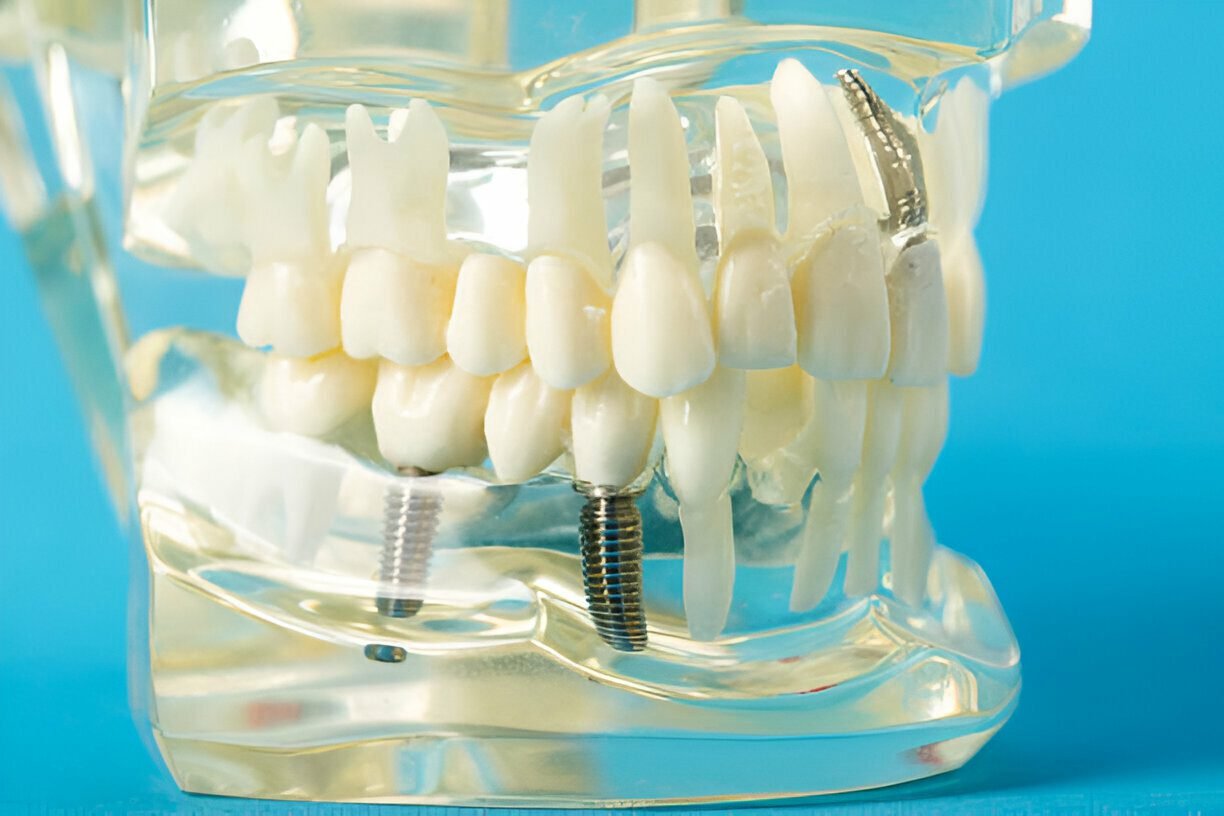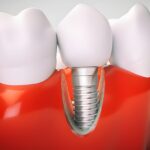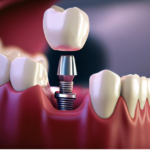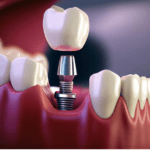Dental implants are popular. They are a solution for missing teeth. They provide both function and beauty. However, many patients wonder if their mouth can reject an implant. Understanding the process and potential risks is crucial for anyone considering this procedure. This article explores if your mouth can reject a Dental implant. It covers the symptoms of rejection and how to prevent it.
What Are Dental Implants Made Of?
Dental implants consist of three main components:
- The Titanium Implant acts as the root of the replacement tooth. It is surgically placed into the jawbone.
- The Abutment: This connector piece secures the implant to the replacement tooth.
- The Crown: This is the visible part that looks and functions like a natural tooth.
Titanium is the most used material for implants. This is because it is highly biocompatible. It rarely causes allergies or immune responses.
Can Your Mouth Reject a Dental Implant?
While the term “rejection” is often used, it’s not entirely accurate. Organ transplants can be rejected. This happens when the body sees the tissue as foreign. Dental implants, in contrast, do not trigger an immune response against titanium. Instead, implant failure typically occurs due to other factors, such as improper osseointegration.
Osseointegration
Osseointegration is the process where the jawbone fuses with the implant, providing stability. If this process fails, it can lead to implant failure. Factors that can disrupt osseointegration include:
- Poor bone quality
- Inadequate post-operative care
- Underlying health conditions
Symptoms of Implant Rejection
Recognizing the signs of implant failure early can help address the issue promptly. Key symptoms include:
- Implant Mobility: If the implant feels loose or moves, it may not have properly fused with the bone.
- Pain or Discomfort: Persistent pain or discomfort around the implant area can indicate a problem.
- Swelling and Redness: Inflammation around the implant site might be a sign of infection or failure.
- Bone Loss: This can occur around the implant area, compromising its stability.
Why Might an Implant Fail?
Several factors can contribute to the failure of a dental implant. Understanding these can help in preventing and addressing potential issues.
Health Conditions
Certain health conditions can increase the risk of implant failure:
- Diabetes: Poorly controlled diabetes can impair healing and increase infection risk.
- Periodontal Disease: Gum disease can damage the tissues and bone supporting the implant.
- Osteoporosis: This condition weakens bones, affecting the implant’s stability.
Lifestyle Factors
Your lifestyle choices can also impact the success of an implant:
- Smoking greatly raises the risk of implant failure. It does this by harming blood flow and healing.
- Bruxism (Teeth Grinding): This habit can put excessive pressure on the implant, hindering its integration.
- Poor Oral Hygiene: Neglecting oral care can lead to infections and complications.
How to Prevent Implant Failure
Preventing implant failure involves both pre-surgery considerations and post-operative care.
Pre-Surgery Considerations
Before getting implants, your dentist will check your health and jawbone. Ensuring that any existing health issues are managed can improve the chances of success.
Post-Operative Care
Proper care after the surgery is crucial. Here are some tips:
- Maintain Oral Hygiene: Brush and floss regularly to keep the implant area clean.
- Follow Instructions: Adhere to any guidelines provided by your dentist, such as avoiding certain foods.
- Go to follow-up appointments to check the implant’s progress. Deal with any issues early.
Conclusion
The term “implant rejection” is somewhat misleading. But, dental implants can fail due to many factors. Understanding the symptoms and causes of implant failure is key. Taking steps to prevent it can ensure success. You reduce the risk of implant failure. You do this by staying healthy and keeping your mouth clean. Also, follow your dentist’s advice to enjoy dental implant benefits.
Contact Saint Visage Dental Group Today
For the best dental implant care, trust Saint Visage Dental Group. Our experienced team provides top-notch service and personalised solutions to meet your unique needs. Schedule your consultation today and take the first step towards a healthier, more confident smile.
Frequently Asked Question
Can allergies cause dental implant failure?
Allergic reactions to titanium are extremely rare, making it an unlikely cause of implant failure.
How long does it take for a dental implant to integrate with the jawbone?
Osseointegration typically takes about three months, but it can vary based on individual health and bone quality.
Is it normal to experience pain after getting a dental implant?
Some discomfort is normal after surgery, but persistent pain may indicate a problem and should be checked by your dentist.
Can smoking affect my dental implant?
Yes, smoking can impair healing and increase the risk of implant failure.
How can I improve the chances of my dental implant’s success?
Keep your teeth clean. Follow your dentist’s after-surgery instructions. And, treat any other health problems.




